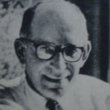Rabbit Is Rich
(Libby/OverDrive eBook, Kindle)
Available Platforms
Description
Excerpt
Similar Series From Novelist
Similar Titles From NoveList
Similar Authors From NoveList
Published Reviews
Booklist Review
The third "Rabbit" novel sees Harry Angstrom in early middle age, paunchy but still lusting after the female presence. Both bawdy and baroque, a supremely assured comic novel.
Kirkus Book Review
Should Updike's longer fiction prove truly lasting, it may well be in the form of the Rabbit novels--if only because they will so precisely tell future generations what the aging, late-20th-century industrial East of the US was like in sight, smell, sound, and social economy. But why are these novels so interesting to today's readers, for whom the mirror-like sociological surfaces are only a minor attraction? It's their riskiness--the risks that Updike takes in subordinating his supple, reedy intelligence to the far-different Rabbit, an innocent when young (in Run), confused by the Sixties (Redux), and now, in 1979, an incipient Archie Bunker. Legatee to his dead father-in-law's Toyota dealership (doing superbly in 1979, year of the gas-lines), Harry ""Rabbit"" Angstrom is 46, living again with wife Janice--her ex-lover Charlie Stavros is now Rabbit's co-worker and good friend--in her mother's Brewer, Pa. house. But Rabbit's having trouble with son Nelson, 23: the kid has brought a girl back from college with him--and there's yet another girl, left behind (and pregnant), whom he'll soon have to marry. Nelson's plight, to his father's eyes, seems pathetic, spoiled, distasteful (too much like young Rabbit's messiness?). After all, Rabbit is now ""rich."" He reads Consumer Reports, even while Janice is initiating lovemaking (a heavy-handed scene, as are such other sexual/economic images as Rabbit's placing Kruggerands on Janice's nipples). He's a golfer at a country club for ""a class of young middle-aged that has arisen in the retail business and service industries."" He even plays sexual swapsies on a Caribbean vacation. And Rabbit ""sees his life as just beginning, on clear ground at last, now that he has a margin of resources, and the stifled terror that always made him restless has dulled down. He wants less. Freedom, that he always thought was outward motion, turns out to be this inner dwindling."" Thus death, plenary, is always on his mind: he searches out Ruth, the prostitute he briefly lived with in Run, in quest of a possible daughter they may have had together; though Nelson's a pain, he at least bequeathes to Rabbit a granddaughter; and the book's most luminous scene is Rabbit and Janice telling her old mother that they've bought a house of their own and are therefore clearing out of hers. Yet the book, tugged at by the gravity of age, is stalled at its heart. Rabbit's innocence doesn't feel storm-tossed enough; if Redux was slightly too operatic, far-fetched, Rich is too placidly striated. Moments are marvelous--a Sunday afternoon sunset at the country club, telling a mildly amusing story only to have it picked to death by interruptions--but some also seem tiredly obligatory (e.g., a catalogue-aria of a guest bathroom that's too reminiscent in purpose and angle to the drugstore inventory in Redux). And Updike's larruping, clausal sentences double the book back on itself tightly--perhaps to suggest Rabbit's new safe burgher-ness, but perhaps, too, because of a lack of real energy. Still, whatever its limitations as a narrative, this is commanding work from a writer whose great, wide intelligence is probably unrivaled in American fiction: Rabbit lives, if perhaps a bit less vitally now, and most serious readers will want to keep track of him. Copyright ©Kirkus Reviews, used with permission.
Reviews from GoodReads
Citations
Updike, J. (2010). Rabbit Is Rich . Random House Publishing Group.
Chicago / Turabian - Author Date Citation, 17th Edition (style guide)Updike, John. 2010. Rabbit Is Rich. Random House Publishing Group.
Chicago / Turabian - Humanities (Notes and Bibliography) Citation, 17th Edition (style guide)Updike, John. Rabbit Is Rich Random House Publishing Group, 2010.
Harvard Citation (style guide)Updike, J. (2010). Rabbit is rich. Random House Publishing Group.
MLA Citation, 9th Edition (style guide)Updike, John. Rabbit Is Rich Random House Publishing Group, 2010.
Copy Details
| Collection | Owned | Available | Number of Holds |
|---|---|---|---|
| Libby | 1 | 1 | 0 |





































